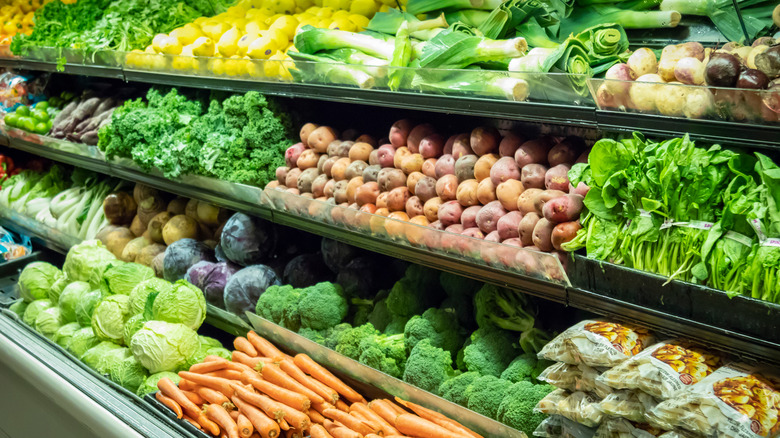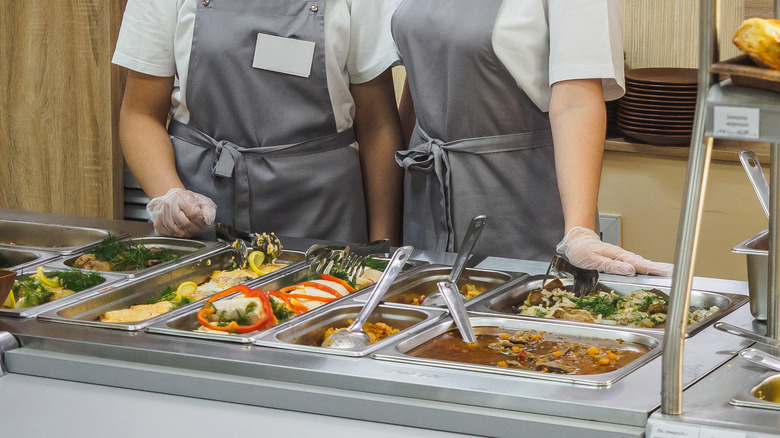Here's What Your Local Grocery Store Likely Does With Old Produce
There are tens of thousands of food items that fill produce displays and line supermarket shelves. Of those items, not all of them will be eaten before their expiration date — food waste is inevitable. Yet, every time you step foot inside a grocery store, new products are all around you. So, what exactly does your local grocery store do with past-its-prime produce?
Nationally, 40% of our food supply (worth about $161 billion) ends up as waste, reports the USDA. The reasons are varied but loss can happen at any point within the supply chain, attributed to anything from spoilage during or after production, over-ordering by retailers, and even consumers buying in excess.
Given the huge amount of food waste, the EPA has developed a food recovery hierarchy outlining that there should be a focus on reducing the volume of surplus food, followed by feeding hungry people, feeding animals, repurposing waste for industrial purposes, and composting before food waste reaches landfills. That said, you might be happy to know that your local grocer has probably embraced some unique solutions in lieu of this model to fight food waste.
Giving food scraps a second life
Much like repurposing food scraps when cooking at home, the same can be said for your local grocery store. According to Forbes, any fruits, vegetables or meats that are approaching their expiration date are typically used to whip up culinary creations to sell at their deli counter and salad bar — how's that for sustainable?
Despite the fact that not all food can be saved, that doesn't mean that the rest ends up in a landfill. The Atlantic reports that many grocers will also donate to food banks, while other items are actually sold to salvage stores. Sold at cheaper prices, Modern Farmer explains that goods can include foods that have (or are approaching) their best-before dates, along with imperfect produce, discontinued seasonal items, overstock items, or items that might not have sold well.
While labels can be helpful, using common sense is also important when it comes to figuring out what to do with old produce. The FDA explains that best-before labels shouldn't be thought of as expiration dates, rather just an indication of quality. Unless foods are stored improperly or have changed in odor, color or consistency, then they should be safe to eat.

